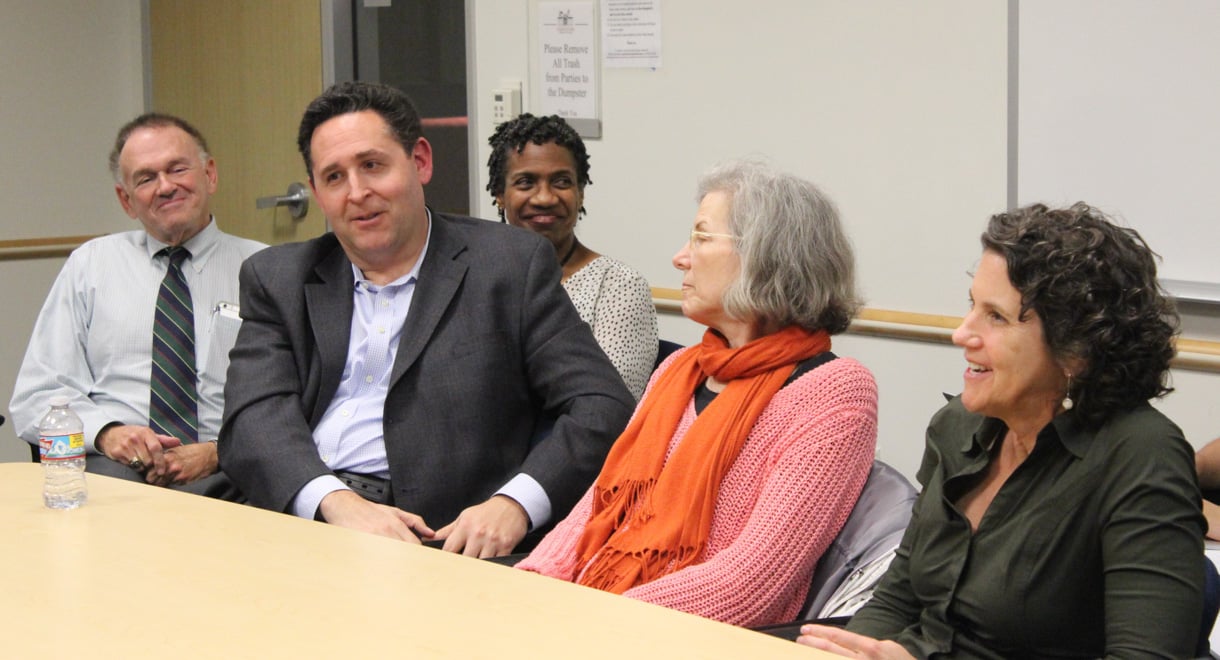At Tuesday’s Graduate Student Council (GSC) meeting, members met with several University officials to collectively address student concerns of the new construction project in Escondido Village. Officials also responded to an appeal filed by graduate students to Santa Clara County.
A few issues raised in the appeal were concerns of community and worker health safety pertaining to lead exposure, availability of parking spaces and the use of modern technology for project design.
Health concerns
“There are EPA regulations [and] California’s Occupational Safety and Health Administration (OSHA) regulations on how lead abatement is handled,” said Shari Libicki, an outside consultant hired by the University for noise and environmental studies.
Libicki explains that in addition to lead, there are two other main environmental concerns that are being taken into consideration: asbestos and diesel particulates.
“If there’s any suspicious signs of asbestos, [the issue] will be addressed and removed before demolition,” she said.
Furthermore, the University conducted a study on diesel particulates in off-campus communities, and the results showed that particulate matter (PM) levels are under half of the acceptable threshold.
“Studies have shown that even small increments of fine particulate matter can cause problems, so Stanford works with the local air quality agency standards in order to accommodate the reduction of small particulate matter,” she said.
Parking space shortage
Students have voiced worries about limits in parking spaces, but Director of Parking & Transportation Services Brian Shaw explained that although there will be a reduction in parking during construction, in the long run, there will be ample parking spaces in Escondido Village.
“Escondido Village will change [during construction], so folks will have to change to some degree their parking habits,” Shaw said. “But in the end, we’ll have roughly a 1,000 net increase in parking spaces.”
‘State-of-the-art technology will be used’
The GSC raised a concern regarding the seeming lack of use of modern technology during project planning, but Laura Goldstein, executive director of the Department of Project Management, explains that it is too early to start using state-of-the-art technology.
“We have started using some Building Information Modeling (BIM), but this technology will be used more extensively when all construction members of this new project are hired,” she said.
BIM is a 3D technology that allows the University to start drafting architectural designs, as well as some structural designs for the new apartments.
“The structural design isn’t fixed [so this] allows for revision and redesign,” Goldstein stated.
Lack of communication
In the appeal, students voiced a concern with project management and a lack of communication between the graduate student body and the University.
“We filed an appeal with the county to ensure that the project moved forward while addressing concerns that many students felt were still unresolved,” said Zachariah Rodgers Ph.D. ’17, a writer of the appeal.
Rodger Whitney, executive director of student housing, argued that the University has taken student feedback into consideration during every step of the process.
“We have reached out to students pretty extensively through surveys and meetings,” he said.
‘We need this housing desperately’
The graduate community and the administration both agreed that additional graduate housing is needed.
“There is no doubt we need housing desperately for graduate students,” said Ken Hsu, assistant vice provost for student affairs.
In a Stanford report, Residential and Dining Enterprises (R&DE) plans on creating 2,400 spaces in Escondido Village. While 400 spaces will be demolished, there will be a net gain of 2,000 new beds to house graduate students.
“This [project] is bigger than me, bigger than all of us, and I don’t want a few concerns, which we should address, to hold us back. I want us to move forward,” said Gabriela Badica, the GSC social events chair.
Contact Aparna Verma at averma2 ‘at’ stanford.edu.
